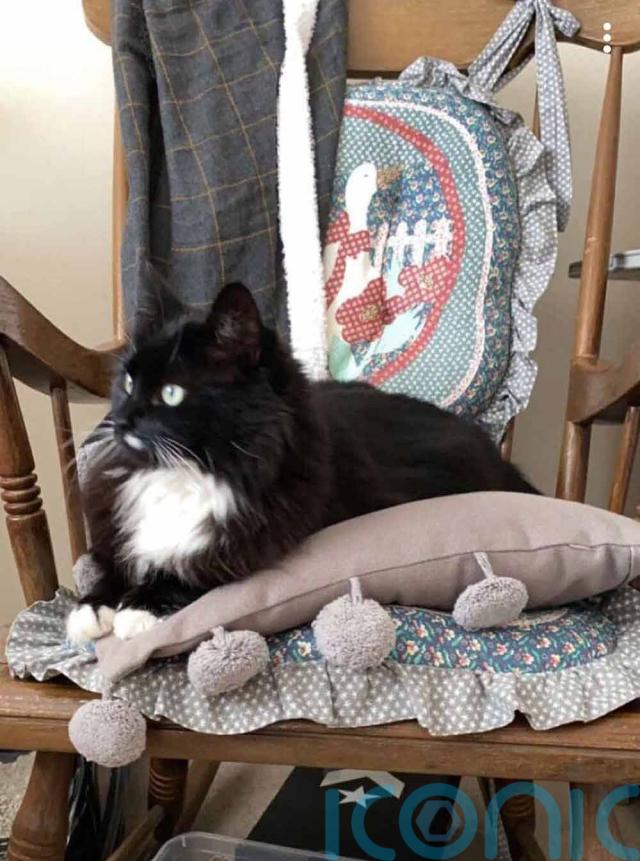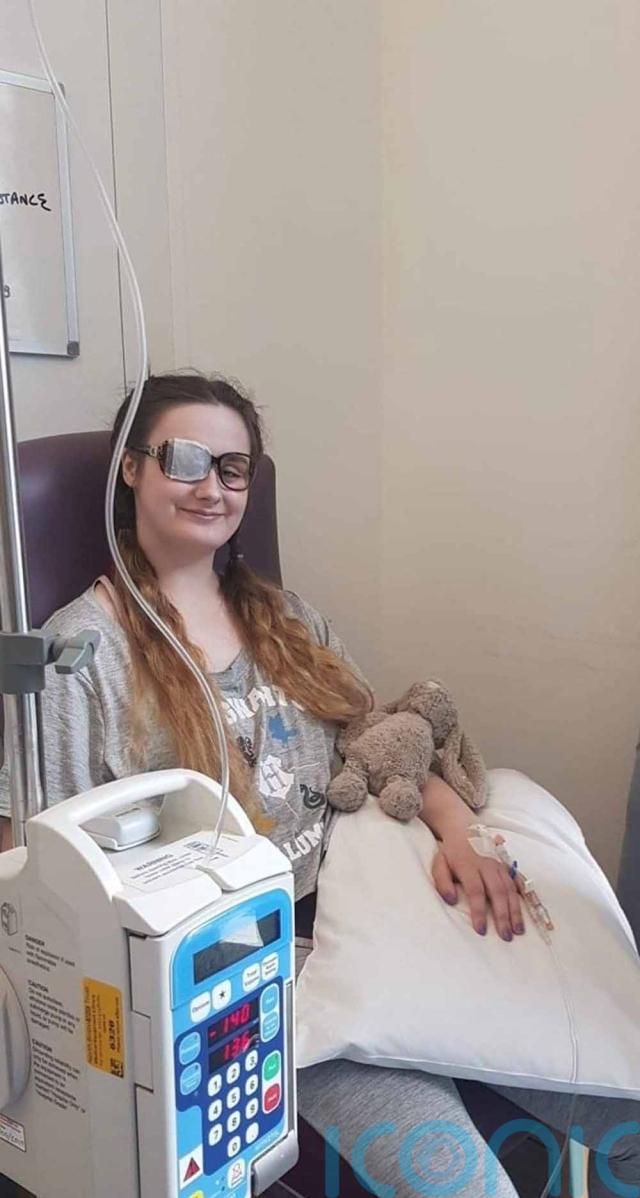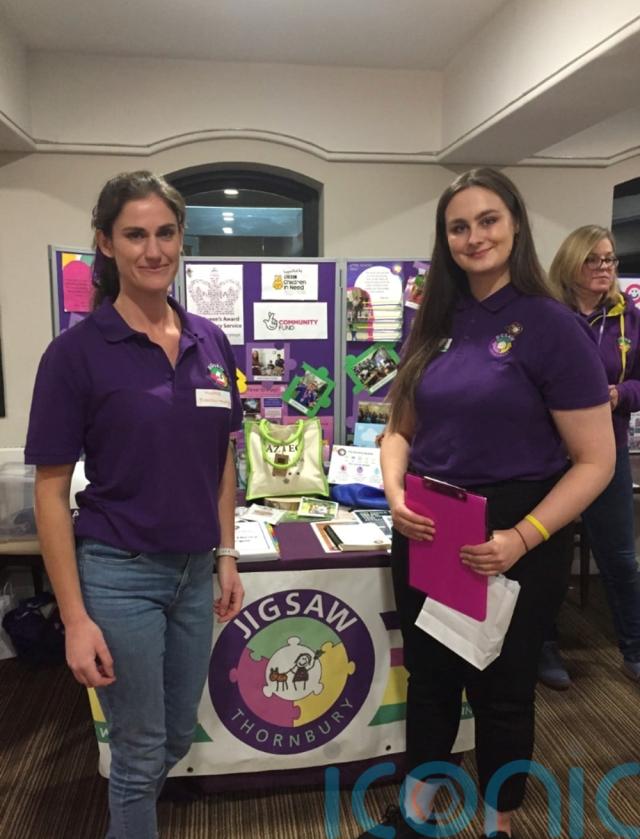
A special constable owes her life to her pet cat whose persistent miaows alerted her mum as she lay convulsing on her bed with a dangerously inflamed brain – moments from permanent injury or death.
Tiff Evans, 24, was admitted to intensive care in a coma and on life support with bacterial meningitis, an infection affecting the membranes covering the brain and spinal cord and auto-immune encephalitis – an alarming and sometimes fatal condition in which the brain becomes inflamed.
Tiff, who lives with her mum Jenny, 45, near Bristol, said: “The last thing I remember is feeling really unwell.”

She added: “My neck felt stiff, my head felt like it was going to explode and I was blacking out, so I wasn’t really aware of what was going on. It was as if I was in a dream and just watching myself.
“My mum never comes into my room and when I am sick, my white and black tuxedo cat Darcy never leaves the room except to go and get food and water. But that morning, my mum says the cat came out of my room and would not leave her alone.
“She just kept miaowing until Mum followed her into my bedroom.”

She added: “We’ve been told I was found just in time, too, because 10 or 15 minutes later and I would have been a very different person now, or I would have died.”
Tiff, who also works with Jigsaw, a charity helping children with special needs and as an Under Officer and instructor for the Army cadets, has asked for her surname to be changed because of the sensitivity of her roles.
Before her ordeal at the end of her first year studying Public Services at University Centre of Weston, Weston-super-Mare, Somerset, in September 2018, she had been an adventurous high flyer.
Recalling how she woke up in Southmead Hospital, with no idea where she was or what she was saying or doing, she said: “Before all this happened, I just thought I had tonsillitis.
“After I collapsed, I remember dreaming I was in the desert on a photoshoot and I saw my brother, Michael, walk out of a tent.
“I called him back to tell him he was supposed to take me home.”

She added: “Then, when I woke up at 10pm that night, I called my dad, Craig, to ask him where Michael was.
“He told me I was very poorly and was in hospital, but I didn’t even react to that. I was in an out of a coma, so I always say I was the lucky one because I knew nothing about any of it.”
Even though her body was naturally fading in and out of consciousness, doctors put Tiff in an induced coma, to give her brain a chance to recover from the inflammation caused by the infection.
“For my family, the worst moment was seeing me in the intensive care unit on life support with machines breathing for me,” she said.
“I’d been on a 5k run and a two-hour bike ride with my dad the week before, so it was a shock for everybody seeing me like that.
“My mum says it was also tough when the doctors decided to do a test to see if I would suffer from seizures. They wanted to shave my hair off, but Mum said, ‘Please don’t.'”
She added: “She says she held her breath while they did that test which was negative.
“As it turns out, I am one of a very small percentage of encephalitis survivors who does not suffer from epilepsy or seizures.”
Keen to promote awareness of the condition in the run-up to World Encephalitis Day on February 22, despite her horrific ordeal, Tiff feels she got off lightly.

According to the NHS, it is not always clear what causes encephalitis, but it may be the result of a viral infection like that causing cold sores spreading to the brain.
It may be a problem with the immune system mistakenly attacking the brain causing inflammation or, more rarely, it may be the result of a bacterial or fungal infection.
But death rates are high and, if left untreated, an estimated 75 per cent of sufferers will die, according to The Encephalitis Society.
The Encephalitis Support Forum is an online safe space for anyone who wants to connect with others who have been directly or indirectly affected by #encephalitis.
It is open to anyone across the world and is free to use.
Find out more and sign up https://t.co/kOuXriiYwq pic.twitter.com/5JBu7EhqAq
— Encephalitis Society (@encephalitis) July 29, 2021
Survivors like Tiff are often left with an acquired brain injury, resulting in multiple difficulties that affect everyday life like memory problems, ongoing fatigue, epilepsy and even changes in their personality.
She said: “I am not the same person that I was before.
“If I had to describe myself before the coma, I was focused, active and determined.”
She added: “But I only really know who I am now. I don’t really remember much about the 18 months before I was ill,
“My mum and those who are close to me say I’m much more positive now, which is a good thing, though, and don’t get as stressed as I used to.”
But Tiff’s journey back to health was far from easy.

When she woke from her coma in hospital after three weeks, she was paralysed from the neck down.
Using the determination she is renowned for, she surprised the doctors who had warned she may never walk again by re-learning to both walk and talk within five weeks and being discharged from hospital just a week later.
She said: “I spent the summer after being in hospital at home just playing X-box with my friends, but then I got fed up with it, so went back to university and also finished my police and army training,”
Not only did Tiff finish her course, but she gained a first class degree and her next goal in life now is to become a police detective.
She said: “Things can still be quite tricky, because I have an acquired brain injury, so there are still some little struggles.
“For instance, I have to really focus on walking and when I don’t I can fall over, so I have quite a lot of bumps and bruises from that.”

She added: “The part of my brain that has been damaged relates to personality and feelings, so sometimes I don’t express my feelings in the correct way. I may be feeling very happy but be crying and that can be difficult.
“But I am who I am and don’t really remember who I was before, so in some ways it’s been easier for me than for my family.
“I always tell them, I was lucky because I wasn’t really around for any of this.”
Tiff is now very keen for people to recognise the symptoms of encephalitis, as this can make a difference between life and death.
She said: “One of my best friends from university says now that she’d noticed that I was a bit different for weeks before it all happened, but she’d put it down to exam stress.”
Tiff credits her boyfriend James, a detective, with being instrumental to her recovery.

The couple, who were on the same university course, started dating a few months after she was hospitalised and she says he could not have done more to support her.
She said: “I am still in recovery and he knows that I don’t always understand why something affects me a certain way or how I am feeling about things.
“But he takes me hiking and he’ll read any new research into the condition with me, so he has been a big part of my recovery and now knows me better than anyone.”
It is incredibly important, according to Tiff, for people to realise that encephalitis has left her and many fellow sufferers with an invisible legacy in the form of an acquired brain injury.
She said: “Because people can’t see the injury, they don’t understand there is an invisible disability after encephalitis.
“It would be so much easier if people understood these struggles.”

She added: “Sometimes, I have to ask people to slow down because they speak fast. I ask them to be patient with me and then they just treat me like a child. If more was known about acquired brain injuries, this would not happen.
“My advice to fellow sufferers is that if you see something you don’t understand just ask.
“I wish people would ask me more about what’s happened to me, because then they would understand me better.”
Subscribe or register today to discover more from DonegalLive.ie
Buy the e-paper of the Donegal Democrat, Donegal People's Press, Donegal Post and Inish Times here for instant access to Donegal's premier news titles.
Keep up with the latest news from Donegal with our daily newsletter featuring the most important stories of the day delivered to your inbox every evening at 5pm.